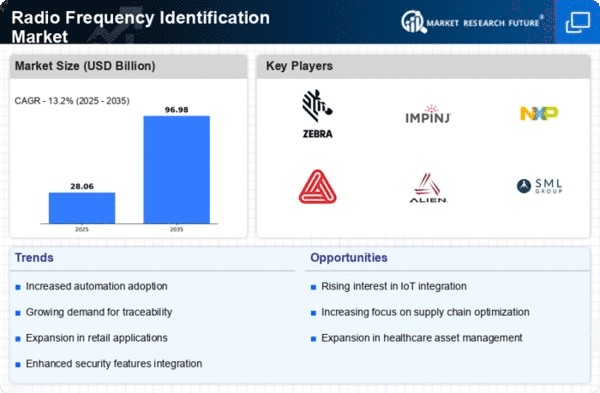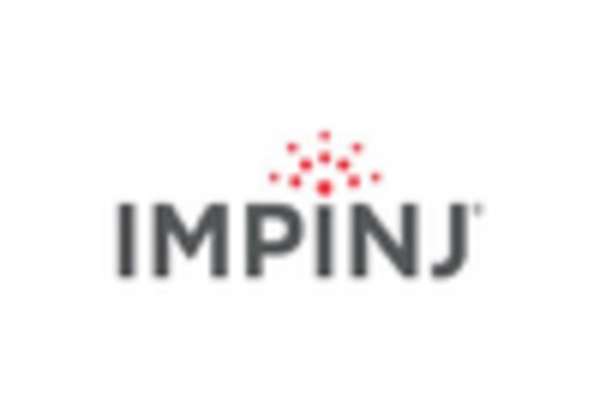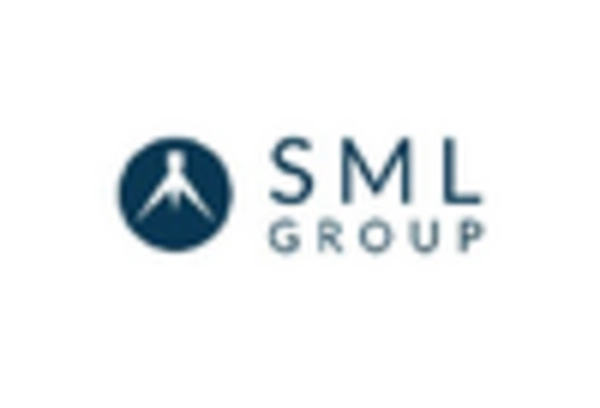Market Trends
Key Emerging Trends in the Radio Frequency Identification Market
The Radio-frequency identification field is seeing noticeable patterns that showcase the continuing transformation and acceptance of RFID technology in different sectors. One such trend is the growing convergence of RFID with other emergent technologies such as the internet of things and artificial intelligence. This integration helps to expand the functionality of RFID systems, thereby allowing more complex data analytics, real-time insights and automation. To illustrate, in relation to logistics and supply chain management; combining IoT sensors with radio frequency identification allows for an all-inclusive monitoring process in relation to environmental conditions as well as goods’ statuses along the whole supply chains which leads to greater efficiency leading to reduced operational risks. Another significant development within the market involves a rise in demand for passive RFID technology.
Localization alongside use of RFID in indoor positioning systems is a key market trend. Instead of just tracking assets traditionally, it has become evident that companies have found relevant uses for it to track real-time positions within confined spaces like hospitals or stores hence finding relevant uses especially on healthcare settings where movement of equipment and staff members can be monitored using radio frequency identification devices thus enhancing overall performance efficiency.
Sustainability aspects have impacted trends within the RFID market with an increasing focus on eco-friendly as well as recyclable radio frequency identification tags. As businesses grow more environmentally conscious, they seek out radio frequency identifiers solutions that meet their sustainability objectives. Manufacturers are increasingly developing low impact environmental-friendly radio frequency identifications that incorporate minimal waste production materials plus processes through which these tags are made. It epitomizes a greater tendency towards greener operations across industry lines.
Blockchain Integration is one of the top trends displaying in security and traceability that enable secure RFID data storage. As a consequence, organizations can use this combination to create safe mechanisms of tracking and controlling merchandise through supply chains that are open. This is especially relevant in industries where data integrity and traceability are paramount such as pharmaceuticals or high value goods.
Customization and personalization are emerging trends in RFID applications especially in fashion and luxury sectors. By using RFIDs brands can now identify every item uniquely thereby facilitating personal interaction between customers with products. Tags employing this feature help consumers make decisions about their purchases by providing personalized recommendations, authentication services and interactive stores experiences thus giving them room to actively engage out-brands that promote tailored communication with its clients."

















Leave a Comment